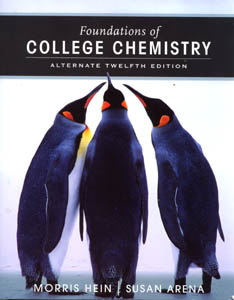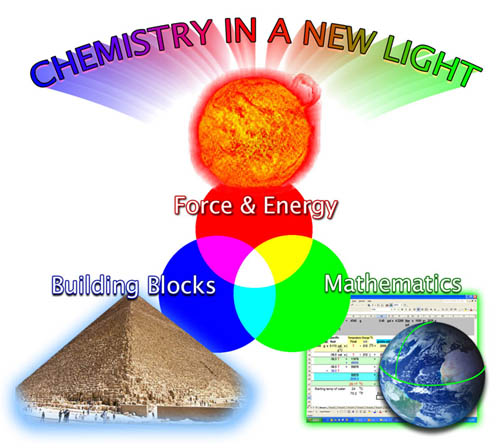Textbook: "Foundations of College Chemistry" Authors: Hein and Arena Three editions to choose from. The 13th Edition is in bookstore and the 11th and 12th Editions are found online and usually much cheaper. Instructor will email you details on where to purchase the 11th and 12th Editions. |
(#25881/Spring 2011) |
||
|
chm130@chemistryland.com 480 202-2993 (cellphone #) |
|||
11th Edition |
Alternate 12th Edition |
Alternate 13th Edition |
|
 |
 |
 |
|













